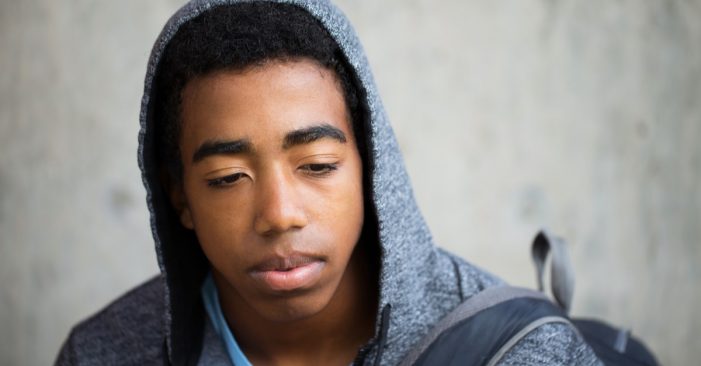By Rhokeisha Ford, Center NYC
As a New York City public high school principal, I learned that a percentage of my students were literally unaccounted for. Their names appeared on my roster, but for one reason or another did not attend school regularly or at all. They were lost in the abyss of truancy, making them more likely to enter the notorious “school to prison pipeline.”
(I also learned that there was a powerful incentive to relentlessly locate truant students – and then discharge them from the roster. Why? Because that decreased the denominator of the cohort, therefore increasing the classroom performance data of the remainder, a result that was highly valued by our superiors.)
Such chronic truancy is a national, as well as local, crisis. US Department of Education data shows that more than six million school-aged children, two million of them high schoolers, miss 15 days or more of school a year. More than a fifth of Black high schoolers, and almost that many Latinx high schoolers, are chronically absent.
Punitive school disciplinary decisions often fuel this absence. I remember watching students’ light bulbs dull or go out completely every time they were put out of the classroom as a form of discipline. I knew when I was about to lose them. I saw it in their eyes. I remember how enraged I would get when a student entered my office to notify me that their teacher would not allow them admission into the class because they arrived several minutes after the bell. I made it my business to sit with children who were removed or disciplined. I allowed them to share their stories and pain.
I’ve since resigned from the Department of Education and begun efforts to reach the missing children: those who don’t feel included in the traditional school setting; those afraid to come back to school, or who had home lives so difficult that school became secondary; those who became entangled in the criminal justice system.
I became deputy director of a community-based organization. Its goal: reducing recidivism and working with the most endangered and unprotected youth in Central and West Harlem. It was led by “credible messengers” who through their own lived experiences were able to reach and truly connect with some of the most unreachable and often-forgotten youth, leading to healing and transformation.
Many of the young people I encountered at the non-profit were former students of mine, now young adults, who had either been incarcerated or impacted by the criminal justice system.
These were the young people who were often on my roster but barely came to school, or those who were often suspended, disciplined regularly, or asked to be removed from class. All possessed talents that had gone untapped, and all had a history of trauma starting from childhood or birth that had gone unidentified and untreated. All said approximately the same thing when they saw met: “Ms. Ford, you were like a mother to me, I always felt that you cared about me even though I was ‘bad.’”
Who labeled them “bad” and why into their adulthood did they accept it?
As a seasoned and master educator, I see generations of people who have been failed, misled, misguided, mis-educated, and manipulated to believe that systems we have been indoctrinated into, enslaved by, and brainwashed to believe in, really have our best interests at heart. People of color have experienced years of trauma at the hands of the archaic education and criminal justice systems.
Where do we go from here? At the outset, if I were the mayor, I would do these three things.
First, instead of convincing students that they’re failures, let’s equip them for success in life. Let’s make it mandatory that every public school student learn about financial education. This should include courses on credit, taxes, investments, entrepreneurship, land ownership, trades, farming, and sustainability. The goal should be graduating with the basic financial skills needed to be a truly productive member of society, particularly in marginalized communities.
Second, every educator should be fully trained and certified in best trauma-informed practices, specifically social-emotional learning, micro-aggressions, and implicit biases. Every student also should have free and confidential access to mental health support and therapy – and these services should not be directly connected to the school personnel responsibilities as “mandated reporters” of suspected child abuse and neglect.
Third, let’s invest more in our community-based organizations, and provide them the training and resources they need. CBOs tend to have a stronger finger on the pulse of the communities they serve. Let’s enhance their ability to work alongside schools to tackle truancy, mental health, juvenile and social justice issues.
On a national scale: We really need to stop criminalizing poverty. Poverty is the birth mother of crime, yet we invest so much more time and money trying to combat crime than we do in leveling the playing field by combating poverty. The lack of access to equitable resources and mental health issues resulting from decades of institutional racism have all contributed, resulting in the inability to heal the wounds of trauma-impacted people.
We cannot continue to turn a blind eye to these trespasses and ignore the history of American institutions and their intentions to explicitly harm and control people that have been colonized for centuries. “Defunding the police” is an insulting distraction: The goal should instead be the complete overhaul and reconstruction of public education and the justice system. Because when public schools fail to become incubators of citizenship and success and instead become the feeder institution for the criminal justice system, we truly need to reevaluate our government’s approach, philosophy, and values.




